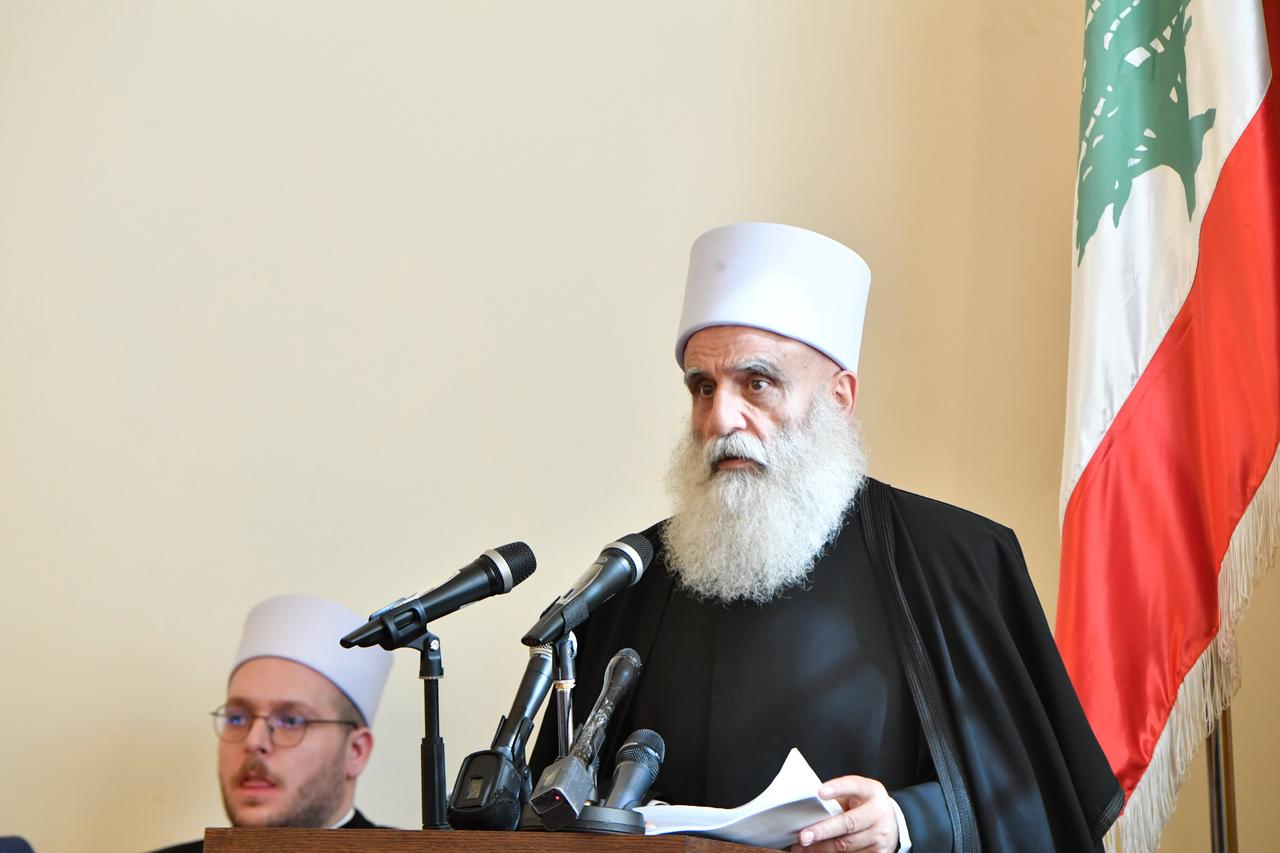
Lebanese Druze leaders called for urgent intervention by Türkiye and Arab nations to end ongoing clashes in Syria's southern Sweida province, warning that Israel is exploiting the security situation to sow discord in the region.
Sheikh Sami Abil-Mona, leader of Lebanon's Druze community, told Anadolu Agency on Friday that dialogue remains the only way to protect Sweida and Syria from further violence and division.
"Any agreement reached in Sweida cannot be sustainable without clear and explicit guarantees from Türkiye and Arab countries," Abil-Mona said, emphasizing the need for international backing to resolve the crisis.
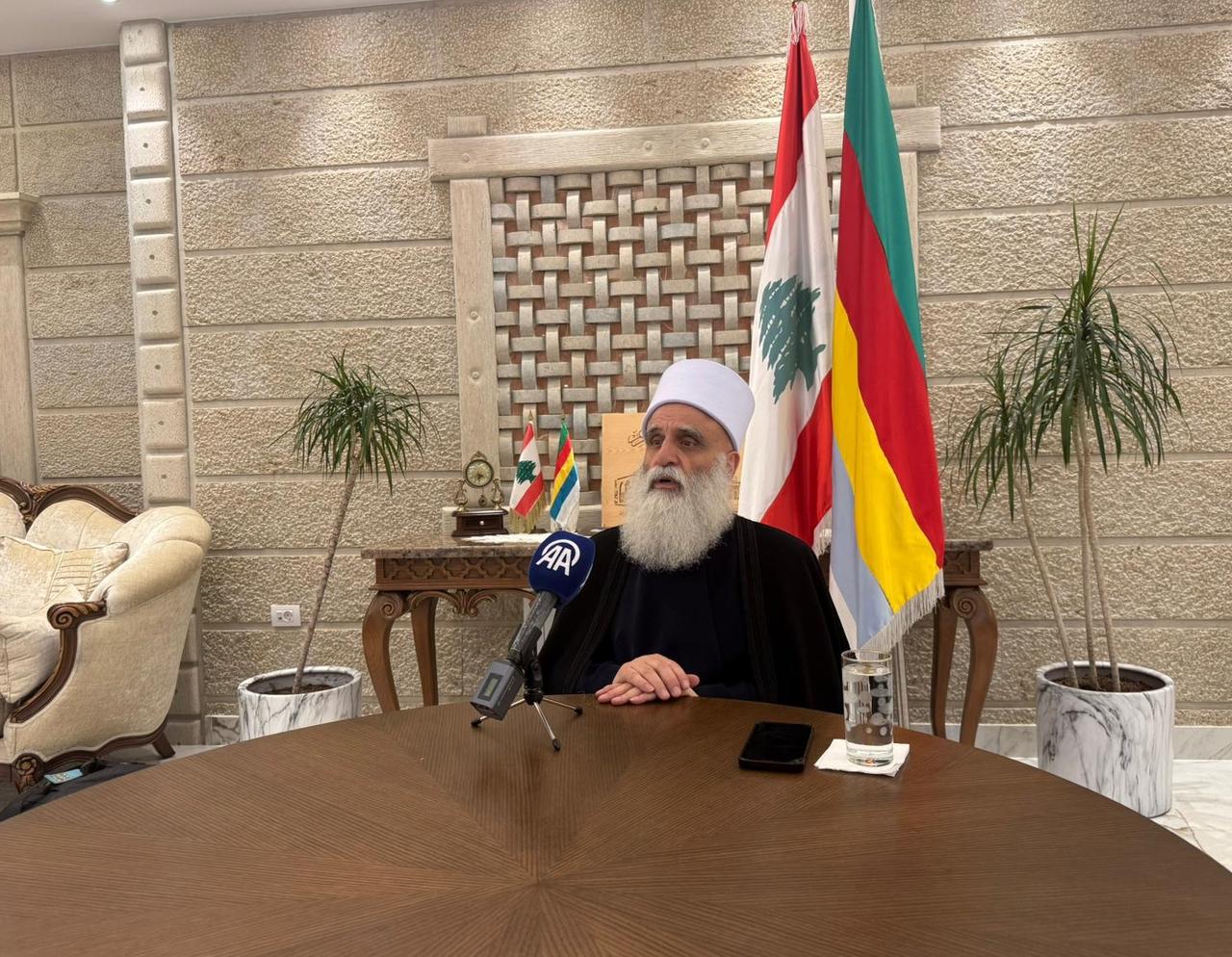
The Druze leader described the recent agreement reached overnight Thursday as "a good step" but stressed it requires sponsorship and guarantees from Türkiye and Arab countries for implementation.
"Because trust between the state and local groups (Druze armed elements) has been completely lost," he explained.
Abil-Mona warned about the consequences of continued violence in Sweida on stability in Lebanon, stating, "There are those trying to carry the strife to Lebanon. There are worrying movements aimed at fueling sectarian tensions."
The Lebanese Druze leader made an urgent appeal for regional intervention: "I call for the urgent intervention of Türkiye and Arab countries to end the ongoing clashes in Sweida. What is happening in Syria is developments that should be condemned, surprising, and worrying. This situation threatens Syria's unity and the establishment of the modern new state we have great hopes for."
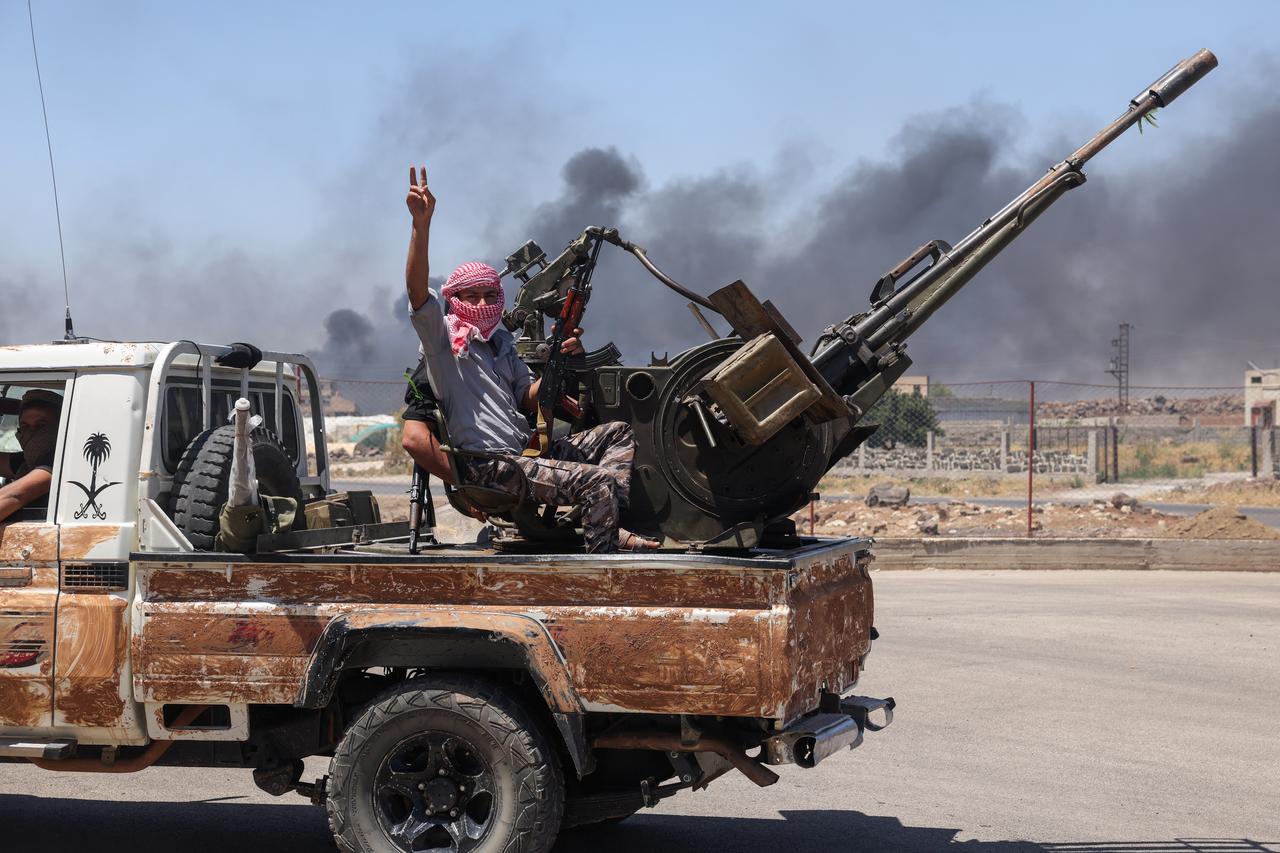
Abil-Mona accused Israel of being the primary beneficiary of the Sweida crisis.
"Israel is the party that benefits most from what is happening in Sweida. It is trying to sow seeds of discord by exploiting the security situation and pushing some sectors to demand protection," he said.
The Druze leader characterized current events as "completely an Israeli project," emphasizing that they "do not reflect the will of the Druze community."
He warned that Israel is "the party most interested in fueling the situation in Sweida" to achieve its interests and expansionist ambitions by directing some components to demand protection under the pretext of threats and dangers.
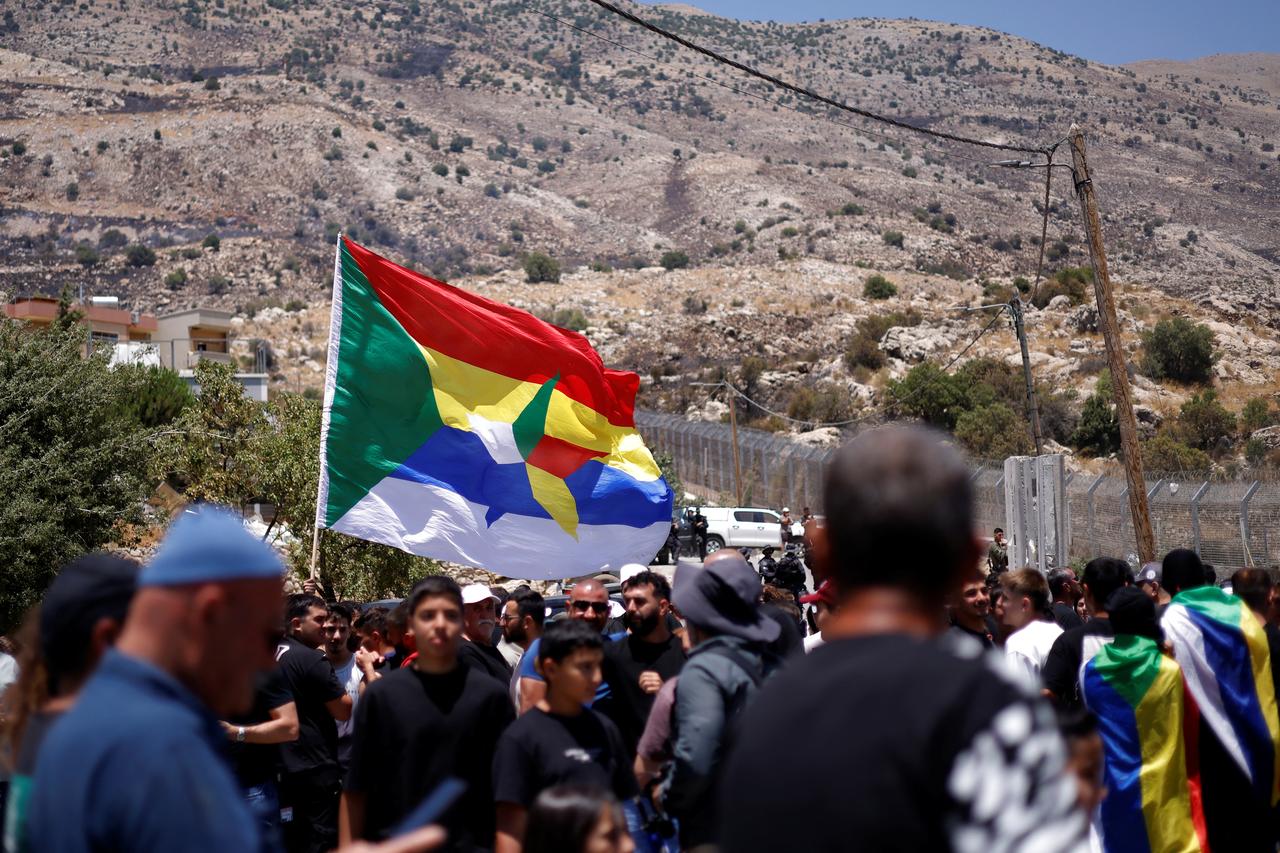
Abil-Mona expressed confidence in Türkiye regarding dialogue and called on the country to sponsor Syrian internal dialogue "in a way that will guarantee the participation of all components and restore confidence in the political process."
The Lebanese Druze community leader warned that continued clashes in Sweida would lead to Syria's fragmentation, a situation rejected by Druze religious authorities throughout history.
He referenced historical Druze leader Sultan Pasha al-Atrash, who led the 1925 Syrian revolution against French occupation: "Historical leader Sultan Pasha al-Atrash had a vision of a united Syria and rejected sectarian closure, naming the region 'Jabal al-Arab' (Arab Mountain) instead of 'Jabal al-Druze' (Druze Mountain)."
Lebanese Druze leader and former Progressive Socialist Party chairman Walid Jumblatt joined the calls for intervention, attending an extraordinary meeting organized by the Druze Council General Assembly in Beirut.
"I propose declaring a ceasefire in southern Syria and entering into dialogue between the state and effective actors in Sweida," Jumblatt said during the meeting.
Jumblatt called for establishing an investigation committee regarding recent events in Sweida and demanded condemnation of Israel's recent attacks on Syria and continued daily violations against Lebanon.
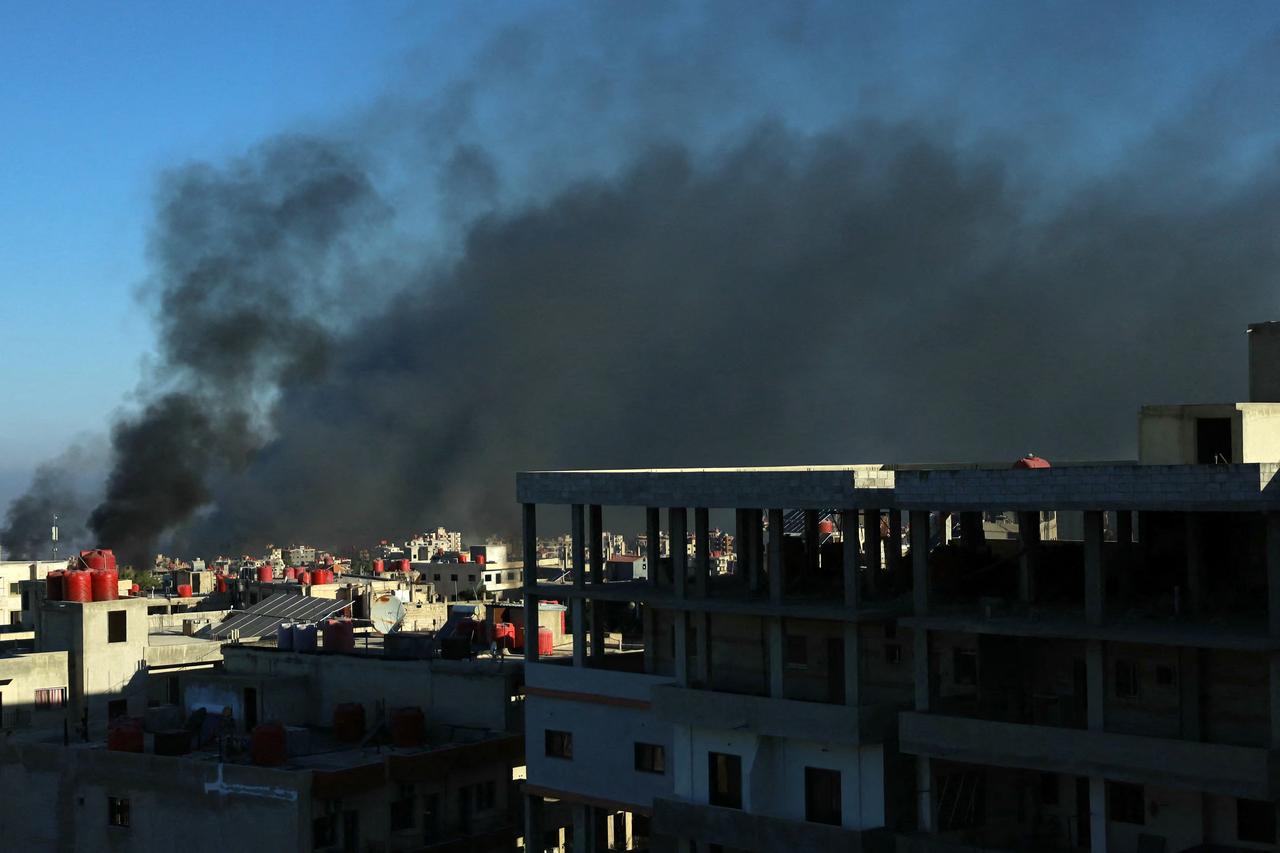
Jumblatt rejected calls for independence from some sectors in Sweida, emphasizing that the province is "an inseparable part of Syria."
"We must prioritize reason before making statements or condemnations regarding what is happening in Syria," he stated.
Abil-Mona firmly rejected requests for Israeli protection for Druze in Sweida: "We do not accept the request for Israeli protection by some parties among the Druze in Sweida, because this harms our history and identity."
He condemned attacks by some Druze groups against Sunni Bedouins and other sectors, as well as "loud tribal mobilization calls that carry the danger of sectarian war."
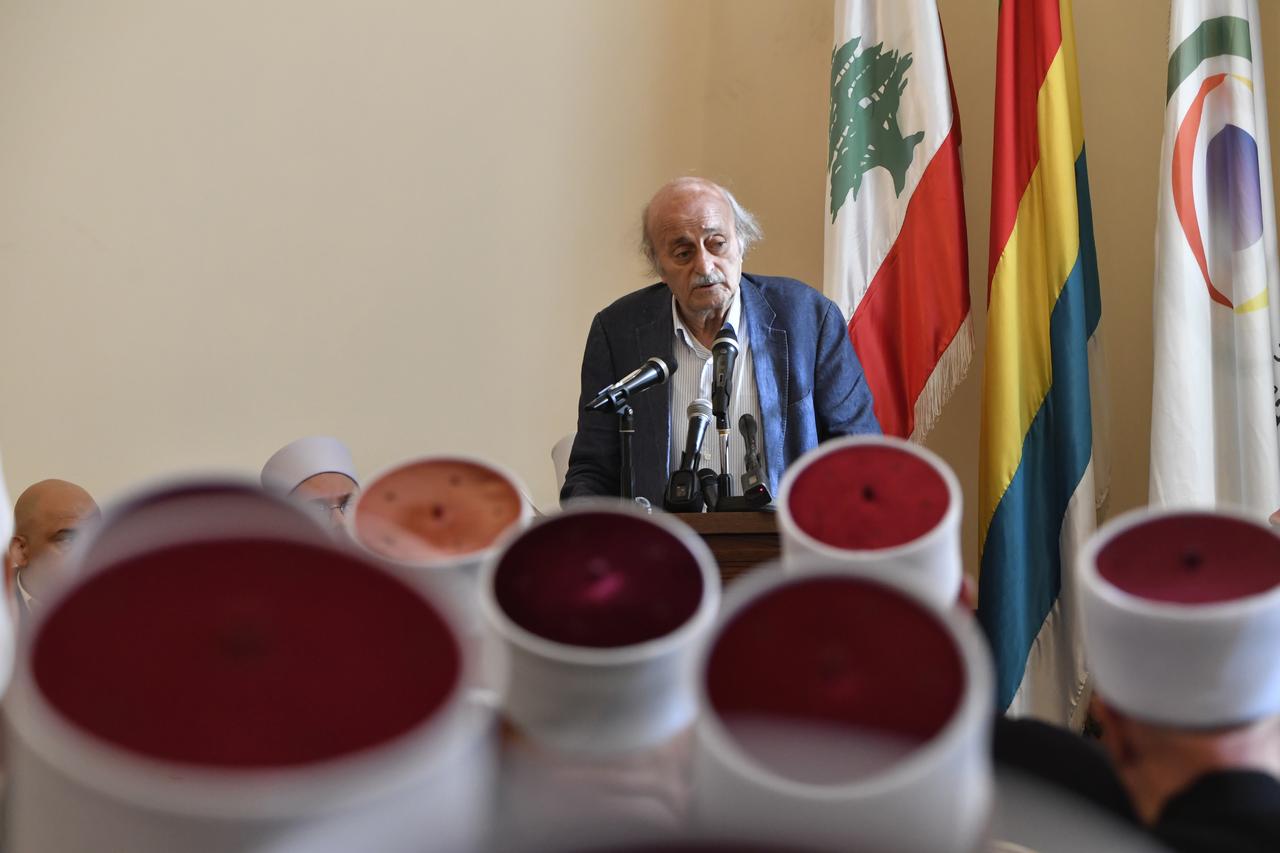
Small-scale clashes began on July 13 in Syria's southern Sweida province between Bedouin Arab tribes and some Druze armed groups. Dozens of soldiers were killed when some Druze groups attacked Syrian security forces sent to the region.
After clashes escalated between security forces and local armed Druze groups, a cease-fire was reached between the parties. The cease-fire was quickly broken, and Israeli forces launched attacks targeting Syrian security forces.
On July 16, Israeli air forces struck the Syrian presidential complex, the General Staff headquarters, and the Defense Ministry. While a cease-fire was re-established between the government and local groups in Sweida the same day, Israeli warplanes launched attacks on Damascus and Daraa.